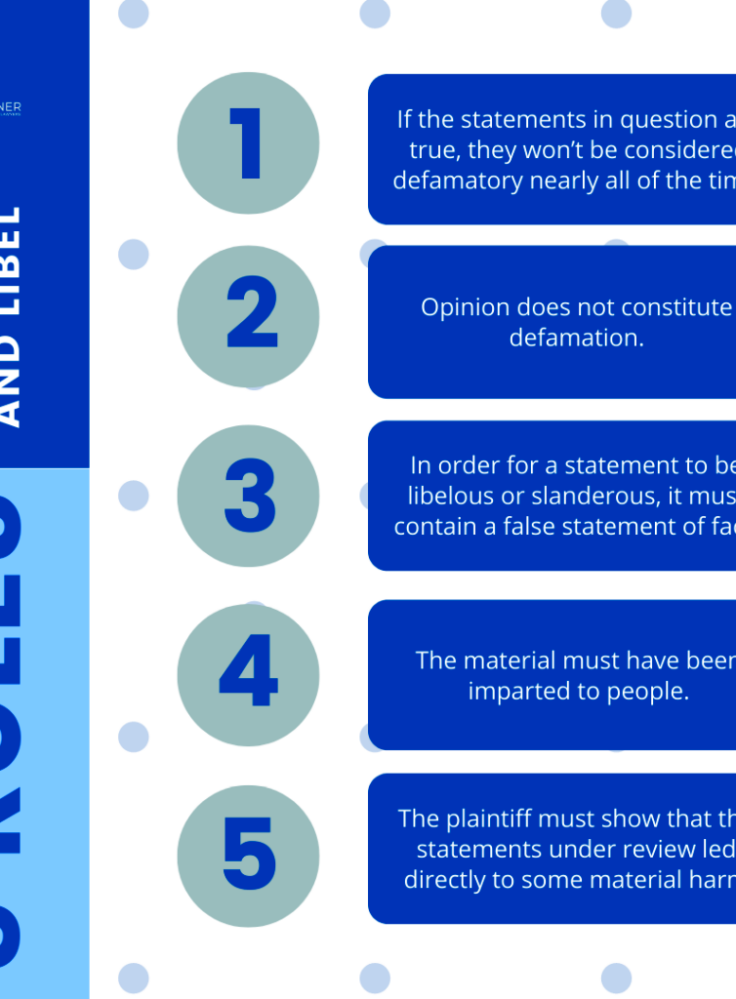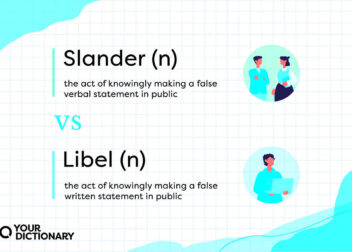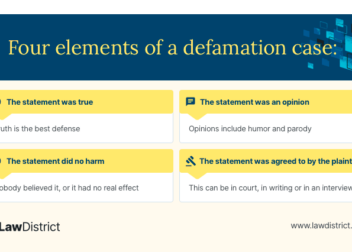Protection from Slander and Libel in California
If you want to safeguard your reputation in California it’s essential to grasp the subtleties between slander and libel. Although these terms are often used interchangeably they refer to forms of defamation. Based on my observations I’ve witnessed how swiftly rumors and misleading statements can circulate causing damage to both people and companies. Familiarizing yourself with the legal definitions and safeguards in place is crucial, if you ever find yourself facing a situation.
Legal Definitions of Slander and Libel
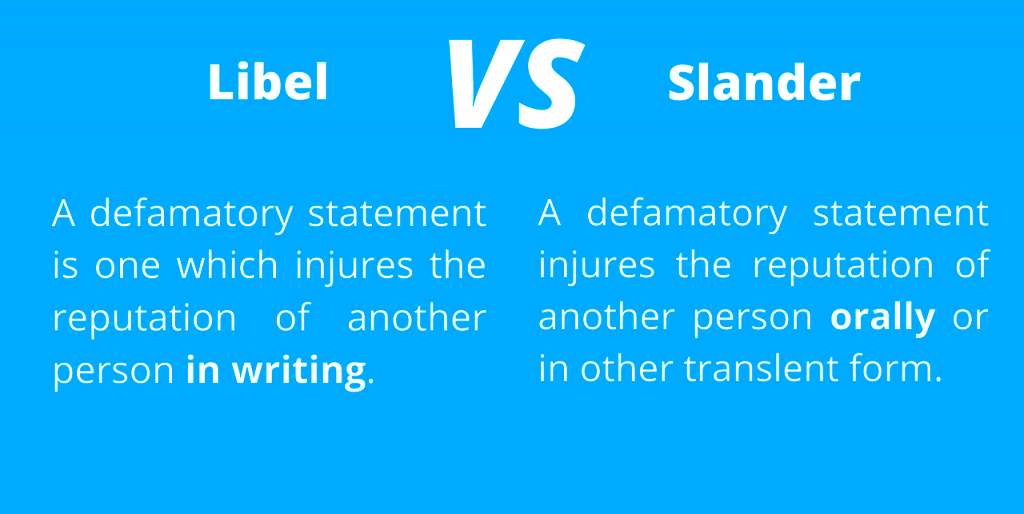
While both slander and libel are considered forms of defamation they differ in their medium. Here’s a brief overview of the two:
- Slander: This refers to defamatory statements made verbally. For instance, if someone spreads false information about you in a conversation, that’s slander. It’s often more challenging to prove since it’s not recorded.
- Libel: This involves defamatory statements made in a fixed medium, such as written text or images. This includes social media posts, articles, or even a handwritten note. Unlike slander, libelous statements are easier to prove since there’s tangible evidence.
Based on my experience dealing with libel cases can be easier when there is evidence backing up the allegation. Nevertheless the context and substance of the matter have an impact on the verdict.
Key Elements of a Slander Claim
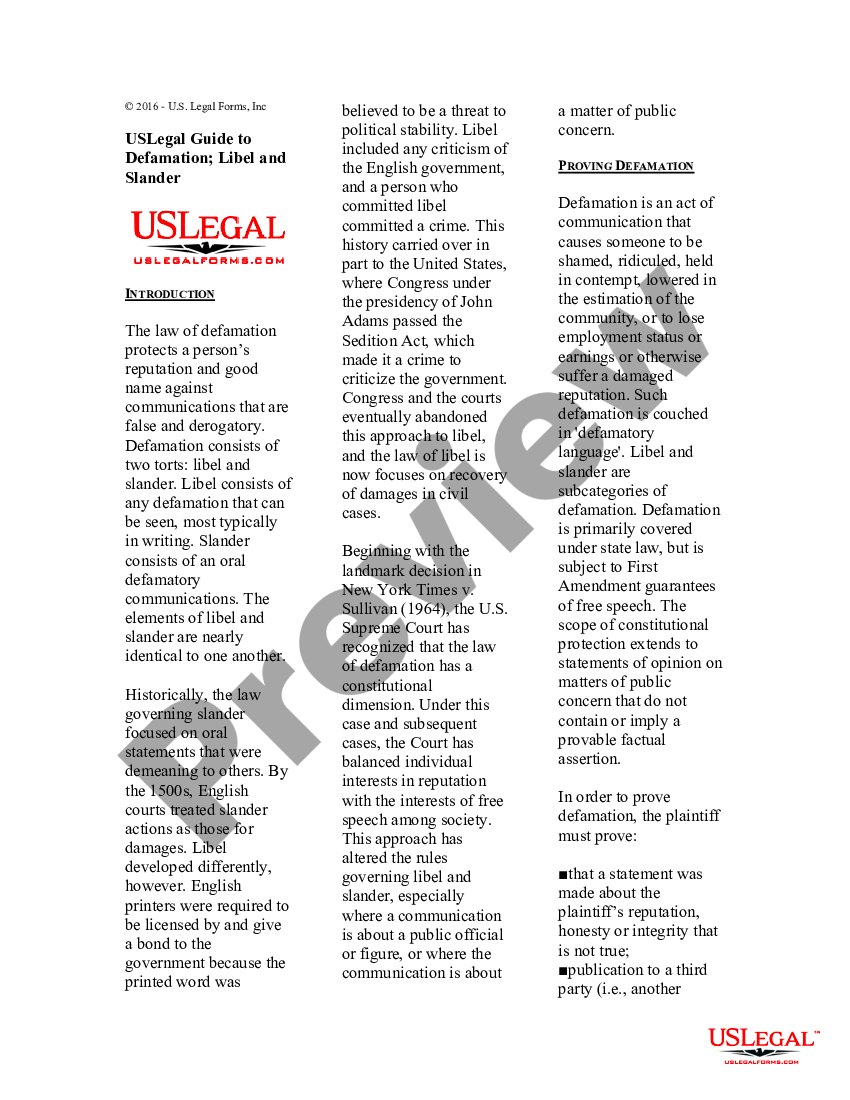
In order to win a slander case there are a few important factors that must be proven. Here are the key points you should be aware of.
- False Statement: The statement made must be false. If it’s true, it’s not considered defamation, regardless of how damaging it might be.
- Unprivileged Communication: The statement must have been made in a context where there was no legal privilege to make it. For instance, statements made in a court proceeding are often protected.
- Negligence or Actual Malice: Depending on whether you’re a private individual or a public figure, you need to prove that the speaker was negligent or acted with actual malice. This means they either didn’t take reasonable care to verify the truth or made the statement with reckless disregard for its truthfulness.
- Harm: You must show that the statement caused harm to your reputation. This could be loss of business, personal relationships, or other damages.
Throughout my career I’ve realized the significance of collecting robust evidence and eyewitness accounts to back up these assertions. Every aspect needs to be carefully substantiated in order to establish a compelling argument.
Essential Components of a Libel Claim
When it comes to bringing a libel case in California grasping the elements is crucial. Based on my observations the procedure may appear overwhelming at first. However breaking it down makes the steps clearer. Here are the key points you need to prove in a libel lawsuit.
- Defamatory Statement: The statement in question must be defamatory, meaning it harms your reputation. It’s not enough that the statement is negative; it must be untrue and damaging.
- Publication: The statement must have been published or made accessible to at least one other person besides the plaintiff. This includes posts on social media, articles, or any other written form.
- Identification: The statement must be about you. If the statement is vague or does not clearly identify you, it can be difficult to prove it’s libelous against you.
- Falsity: The statement must be false. Truth is a solid defense against libel, so you need to prove that what was said or written is indeed not true.
- Harm: You must show that the statement caused harm to your reputation. This could involve loss of business, emotional distress, or damage to personal relationships.
In my legal work I’ve discovered that it’s essential to collect evidence of the defamatory remark and its repercussions. This strengthens the case and showcases the tangible impact of the defamation.
Defenses Against Slander and Libel Claims
Grasping possible arguments to counter slander and libel accusations is equally crucial as being aware of the allegations. Based on what I’ve seen these are some of the defenses frequently employed.
- Truth: If you can prove that the statement is true, it’s a solid defense. Truth is an absolute defense against both slander and libel claims.
- Privilege: Certain communications are protected by privilege. This includes statements made in legal proceedings, legislative debates, and some professional contexts where the speaker has a duty to speak.
- Opinion: Statements that are clearly opinions rather than statements of fact are generally protected. For example, saying “I think he’s a terrible manager” is less likely to be actionable than saying “He’s embezzling money.”
- Consent: If the person making the statement had your consent, it’s not considered defamatory. This might be less common but is still a viable defense.
- Absence of Malice: For public figures, proving that the statement was made with actual malice (knowledge of its falsity or reckless disregard for the truth) is required. Showing a lack of malice can be a strong defense.
Based on my background in law a strong defense typically entails showing that the statements at hand are protected by one of these categories or establishing the truthfulness of the assertions.
Steps to Take if You Are a Victim
Discovering that you are a target of defamation or false statements can be an overwhelming and perplexing ordeal. From what I have seen here is a guide on how to navigate through this challenging circumstance.
- Document Everything: Keep a record of the defamatory statements. This includes screenshots of online posts, copies of articles, and notes of verbal statements. Documentation is crucial for building your case.
- Seek Legal Advice: Consult with a lawyer who specializes in defamation law. They can help you understand your options and guide you through the legal process. From personal experience, having expert guidance can make a significant difference.
- Consider the Source: Identify who made the defamatory statements and gather evidence about their intentions and potential for harm.
- Notify the Offender: In some cases, a cease and desist letter can resolve the issue. This formal request asks the person to stop making defamatory statements and correct any misinformation.
- Evaluate Your Options: Decide whether you want to pursue legal action or settle the matter outside of court. Your lawyer can help you weigh the pros and cons of each approach.
In my opinion its crucial to tackle defamation swiftly and comprehensively. By doing so we can reduce the impact of the situation and ensure that those responsible are held accountable for their behavior.
How to Protect Yourself from Slander and Libel
To shield yourself from slander and libel you need to be proactive. In my opinion its wiser to take precautions than to face the consequences of false accusations. Here are some actionable steps to protect your good name.
- Monitor Your Online Presence: Regularly check social media and other online platforms for any negative or false statements about you. Setting up Google Alerts for your name can help you stay informed about mentions.
- Manage Your Personal Information: Be cautious about sharing personal details publicly. The less information available, the less there is for malicious individuals to misuse.
- Establish a Good Reputation: Build a positive online presence through professional achievements, positive interactions, and contributions to your community. A strong, positive reputation can help counteract any potential defamation.
- Educate Yourself and Others: Understand your rights and educate those around you about the importance of responsible communication. Knowledge is a powerful tool in preventing defamation.
- Seek Legal Advice Early: If you suspect that you are being targeted, consult with a legal professional immediately. They can provide advice on the best course of action to protect your interests.
Throughout my journey I’ve discovered that being watchful and knowledgeable can often stop small problems from turning into major ones. Taking an approach not only safeguards your image but also prepares you to tackle any challenges that come up more efficiently.
Recent Changes in California Law
The laws in California related to slander and libel are constantly changing. Staying informed about these developments can greatly influence the way defamation cases are approached. Here’s an overview of key updates based on recent revisions.
- Increased Protection for Public Figures: Recent amendments have made it more challenging for public figures to win defamation cases. They must now prove actual malice, which means showing that the defamatory statements were made with knowledge of their falsity or with reckless disregard for the truth.
- Extended Statute of Limitations: The time limit to file a defamation claim has been extended in some cases, giving victims more time to seek legal recourse. This change aims to ensure that those affected by defamation have ample opportunity to address it.
- Higher Standards for Proof: Courts now require more stringent evidence to substantiate claims of harm caused by defamation. Victims must demonstrate clear and quantifiable damages resulting from the defamatory statements.
- Enhanced Online Defamation Protections: With the rise of digital media, California has introduced regulations to address online defamation more effectively. These laws focus on holding online platforms accountable and providing clearer pathways for victims to seek redress.
In my view keeping up with these developments is essential. It helps you understand your rights and the relevant legal norms, which can have an impact on the outcome of a defamation lawsuit.
FAQ
What is the difference between slander and libel?
Slander refers to defamatory statements made verbally, while libel involves written or published statements. Both are forms of defamation but differ in their medium.
How can I prove that a statement is defamatory?
To prove defamation, you need to show that the statement was false, damaging to your reputation, published or made public, and made without privilege or consent.
What should I do if I’m a victim of defamation?
Document the defamatory statements, seek legal advice, and consider whether to pursue legal action or resolve the matter through other means. Early action can help mitigate the damage.
Can I sue for defamation if the statement was made anonymously online?
Yes, you can sue for defamation even if the statement was made anonymously. However, it might be challenging to identify the anonymous party, so working with legal professionals to uncover their identity is often necessary.
Are there any new legal defenses against defamation claims?
Recent legal changes have introduced new defenses and raised the bar for proving defamation, especially for public figures. It’s important to consult with a lawyer to understand how these changes might affect your case.
Conclusion
When it comes to slander and libel it’s crucial to prioritize safeguarding your reputation. Based on my own experiences and insights taking measures such as keeping an eye on your online presence and being aware of your legal rights can greatly help. Keep in mind that while the legal system offers options for recourse preventing defamation before it occurs is often the most effective strategy. Whether you’re dealing with the fallout from statements or working to protect yourself against potential defamation being knowledgeable and vigilant is key. By staying up to date and ready you can navigate and lessen the impact of slander and libel on both your personal and professional life.
